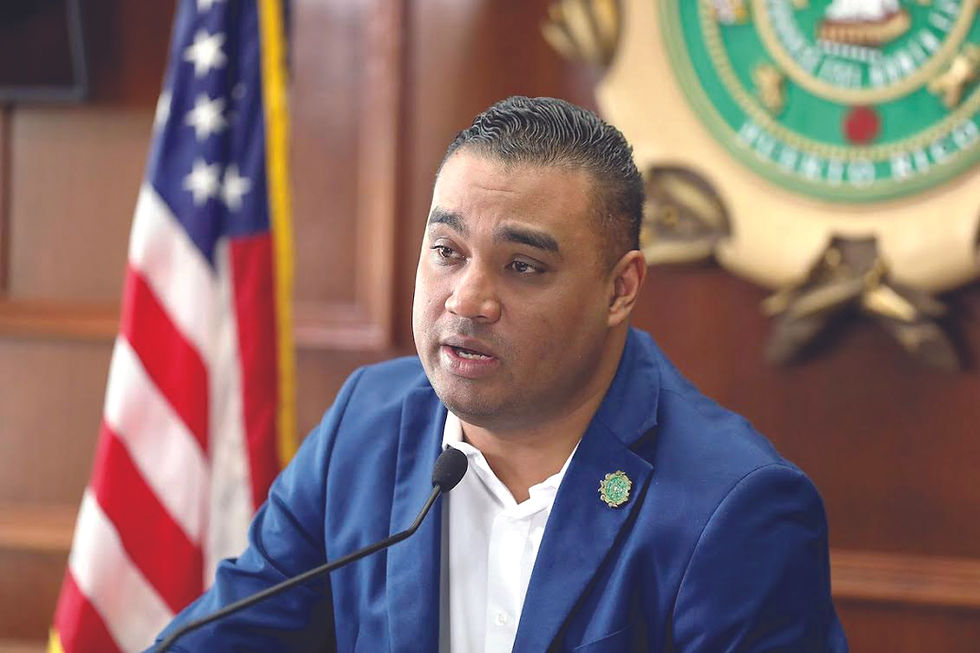Puerto Rico residents can vote symbolically for president in November
- The San Juan Daily Star

- Oct 3, 2024
- 2 min read

By The Star Staff
Not everyone knows that during the November general election, voters will have a fifth ballot in which they will be able to vote symbolically for the U.S. president.
The fifth ballot is violet in color and has columns for those wishing to vote for either the Republican presidential candidate, former President Donald Trump, or for the Democratic candidate, Vice President Kamala Harris. Puerto Rico is a commonwealth and while residents are U.S. citizens, they cannot vote in presidential elections.
The votes for president will not be counted and are just merely an expression. The vote was possible because of an amendment to the electoral code.
In 2000, a lawsuit was filed in the U.S. District Court of Puerto Rico claiming the right to vote in federal elections for the president. The late federal judge Jaime Pieras ruled in favor of the plaintiffs, opening the way for U.S. citizens residing in Puerto Rico to vote in the presidential elections between former President George W. Bush and Al Gore. After holding public hearings in the island Legislature, the Puerto Rico government approved the Presidential Voting Law. The government printed two million ballots for the election. The Court of Appeals subsequently reversed Pieras’ opinion, pro-statehood lawyer Gregorio Igartúa said.
“It is pertinent to point out that if we had voted, we would have decided the presidential election in the United States,” he said. “Once the ruling was overturned, we could still vote under Puerto Rico law even if it did not count in the national election. However, the Supreme Court of Puerto Rico paralyzed the presidential vote at the local level at the request of a brief filed by [former Popular Democratic Party (PDP) Senator] Eudaldo Báez Galib.”
“In other words, it was not enough for the PDP leadership that the presidential vote in Puerto Rico did not count for the national election, [and] they appealed to the Supreme Court of Puerto Rico so that we did not vote even symbolically.”
Nonetheless, Igartúa said, the 2000 lawsuit is now vindicated.
Despite the efforts against allowing Puerto Ricans to vote for the president symbolically in the year 2000, “we will do so on November 5, 2024, in the general elections,” he said.
“This is in accordance with NPP [New Progressive Party] legislation in 2020 (Law 58-2020),” the attorney said. “In this way, 24 years later, the antidemocratic sense of Eudaldo Báez Galib and his antidemocratic Popular Democratic Party, and of the then Supreme Court, was revoked.”






I believe that reading and writing are signs that I'm too old to negotiate in "what could had happened businesses" that move me away from my inmediate reality. I love literature, it has always central in my life; reading and writing about books submerge you in a sea of wonderful symbols explaining who we are, and how we got here. On the other hand, taking an inconsequential action, voting, and attempt to turn it into a symbol is beyond me.
Coincidentally, are we saying that the symbol will catch the attention of someone which in turn will generate another action from another someone to do something. PR is older than the US chronologically; if they haven't notice us all this…
It won’t count if we don’t show interest. That was the intention of the PDP when they voted this down. Wow what a revelation, the 2000 elections were the US Supreme Court over turned the Florida Supreme Court’s handing the election to Bush. I know it wouldn’t have made a difference, but I believe some eyebrows would have been raised. Why is the ballot purple
Please, I need someone with common sense to explain to me what it means for Puerto Ricans in their country to vote "symbolically" for the president of the US. I'm certainly there is rationale, as it was attempted to explain in the article; however, what was missing from the rationale was the "classic," what's in it for PR, how much this symbolic vote will cost Puerto Ricans, or who will receive the results...?
In PR, presently, we are engaged in probably the most important general election cycle of our national history with consequences for the two political parties that had usurped the will of the people for 56 years. The profound crisis that every Puerto Rican live on a daily…